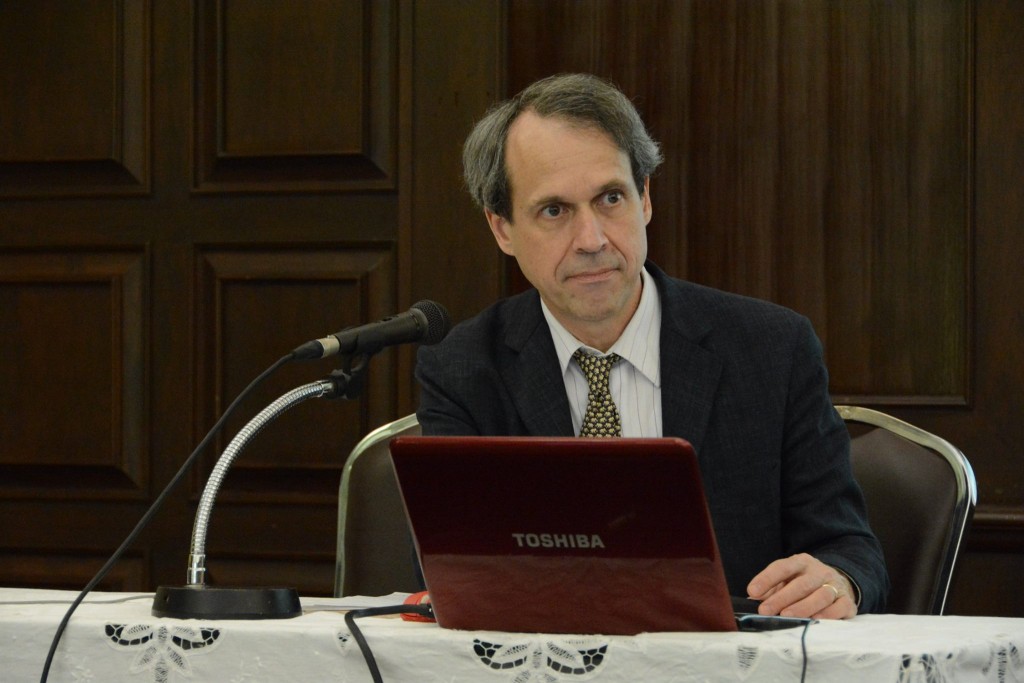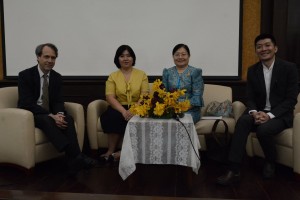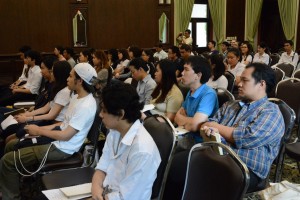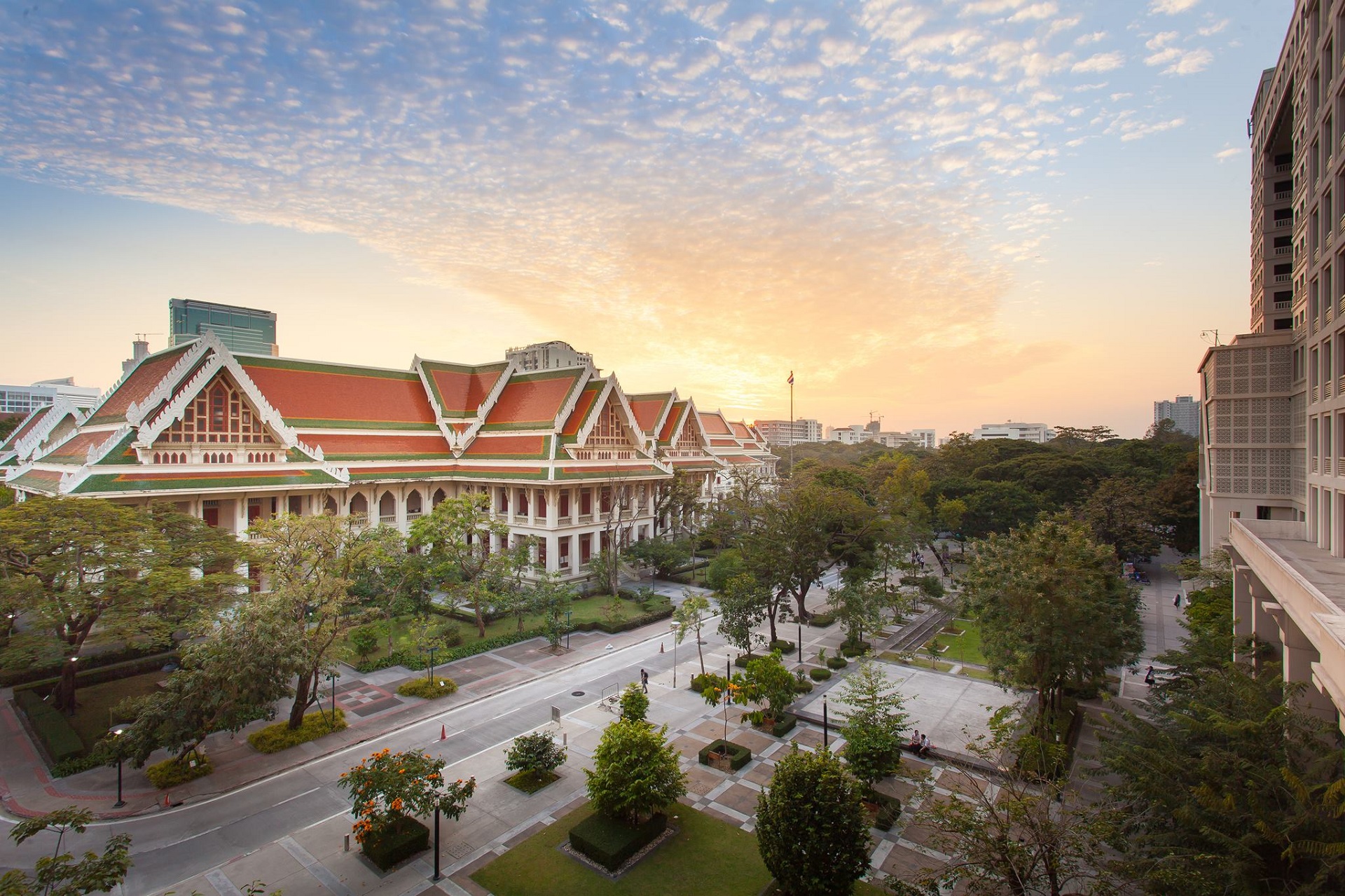
On February 15, 2016, the Faculty welcomed Professor David Damrosch, Ph.D., Chair of the Department of Comparative Literature, Harvard University, who gave a talk on ‘World Literature, National Markets’ in Room 105, Maha Chulalongkorn Building. Greeted by Faculty Dean Associate Professor Kingkarn Thepkanjana, Ph.D., Professor Damrosch stressed, in his first ever talk in Thailand, how literature should be studied both in national and transnational frameworks. He recounted how he first read Lawrence Sterne’s Tristam Shandy and the novel ironically led him to read those works penned by such famous European authors as Rabelais, but not those by Sterne’s compatriots. This led to his belief that literary studies should not be restricted to nationalist discourse, as its content transcended national boundaries. He argued that world literature, though initiated by Goethe some hundred years ago, remained relevant as it functioned as a window to the world, widening both the world-view and the perspective of the reader. However, in the contemporary world of intense globalization, we could not ignore the forces of national markets, as literary works were translated and adapted to the taste and values of the host country. He gave the example of Jamyang Norbu’s The Mandala of Sherlock Holmes, in which Holmes was found traveling in Tibet, as an exemplary case of how a literary work was translated and entered the world market. The covers of its translations as they appeared in various countries, argued Damrosch, reflected the complex reality, which exemplified how local taste and the literary work interacted.
Damrosch’s talk was followed by a seminar on ‘World Literature in Thailand’, in which Damrosch conversed with two literary comparatists, Associate Professor Trisilpa Boonkhachorn, the PENS Thailand Director, and Assistant Professor Phrae Chittiphalangsri, Ph.D. The PENS Thailand Director stressed how Thai literature had always been international, with Ramakien borrowing heavily from Ramayana, and earlier Thai fictions being modeled after foreign works. Phrae Chittiphalangsri, on the other hand, focused on the active role of translation that helped with the creation of Thai canon.
Generously sponsored by the Thailand Research Fund (TRF), the event was collaboratively co-organized by the Department of Comparative Literature and the Thai Humanities Research Forum Program.



